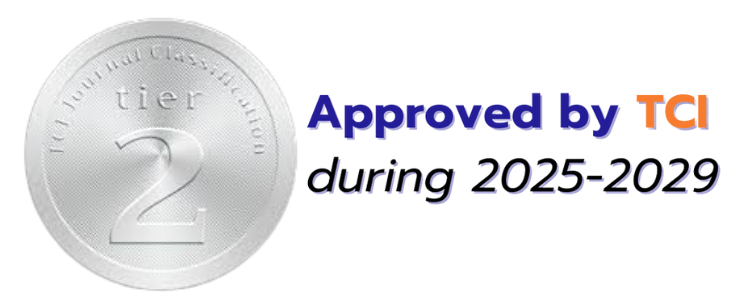A Study of the Expectations and Needs of Stakeholders towards Master of Education Program in Physical Education
Keywords:
Expectations, Needs, Stakeholders, Program in Physical EducationAbstract
The objectives of this research was to study the expectations and needs of stakeholders regarding the Master of Education program; Department of Physical Education. The target group were divided into 4 groups as follows: Group 1: 4 professors responsible for the curriculum, 10 course instructors, and 3 experts, totaling 17 people. Group 2: 1st year graduate students. 8 people, 9 second year students, totaling 17 people. Group 3: 11 people graduating from the 1st generation, 12 people in the 2nd generation, and 7 people in the 3rd generation, totaling 31 people. Group 4: 31 school administrators, section heads, learning group heads, and other assigned people. They collect quantitative data with an online questionnaire via google form, qualitative data with in-depth interviews with stakeholders. Results of the tool quality inspection by 3 experts, consisting of experts in curriculum, teaching, and educational research. Results of the quality check for content validity (Content Validity), IOC values were 0.67-1.00 for every question.
The research results are summarized as follows.
1) Stakeholders have expectations regarding the learning outcomes of the Master of Education program. In the field of Physical Education, it was found that graduates in the program were able to create and design innovations in physical learning management. Quality physical education based on research and academic principles appropriate to the context of learners, communities, and society, able to design research and evaluate learning management to develop systematic thinking, analysis, and synthesis skills in physical education to develop learning management. Learners' knowledge can publish and transfer knowledge according to academic principles and research in physical education to be a leader in learning management with innovation media and modern technology to keep up with social changes and be able to express and behave according to the principles of morality, ethics and academic, and professional ethics in physical education that are socially responsible.
2) Stakeholder needs regarding the required competencies of the Master of Education program. In the field of Physical Education is as follows: Knowledge: Graduates must study and acquire knowledge to develop themselves all the time throughout their lives, able to analyze, synthesize and apply knowledge effectively, and able to apply knowledge to work with coworkers. Graduates must have up-to-date knowledge and be ready to accept changes in the future world, and have knowledge deeply understand their own science. Graduates can seek factual knowledge by themselves in terms of skills, and design and create physical education learning media. Physical education management: graduates must have skills in selecting information for analysis, synthesis, and application of information with awareness and reason. They must have the skills to control emotions in living with others and society and professional entrepreneurial skills, leadership skills and good followers, learning skills in the 21st century, systematic self-management skills, data application skills to be able to create competition, and skills in using technology and be knowledgeable about information in the midst of change. In terms of attitude, graduates must have respect for each other, accept themselves and others, and have the courage to be themselves and not follow others. Moreover, they must be honest and fair, have awareness, be mindful, be considerate, generous, and generous. Graduates must have humility and humility, a positive attitude, and human relations with others. They must be respect for maturity, respect the place you enter, and have self-confidence in the organization.
Downloads
References
Phinda Warasunun Sirichai Sriphrom Khomkrit Chaowaphanich Witas Phatcharoenphon and Jiraporn
Kakaew. (2017). Evaluation of the Bachelor of Education program. Learning management
field Faculty of Education and Development Sciences Kasetsart University. 14th National
Academic Conference, Kasetsart University Kamphaeng Saen Campus.
Suthiphan Theeraphong, Nirumon Suwansri, Thip Khamyu, Jiraporn Rodpuang, and Nongyao
Nuchanart (2021). Expectations and needs of stakeholders regarding the Master of Education
program. Field of study: early childhood and primary education. Journal of Early Childhood
Education Management, 3(2): 1 -10.
Thaweeporn Pengmak, Rosukon Saengmanee and Siriphan Siriphan. (2021). Stakeholder opinions.
in developing a master's degree program in nursing science Faculty of Nursing Narathiwat
Rajanagarindra University. Narathiwat Rajanagarindra University Journal, 13(3): 140-158.
Yada Chawalakul Naphakamon Chana and Latthaphon Chanthonglang. (2018). Stakeholder needs
detrimental to the desired characteristics of the Master of Architecture program Field of study:
Industrial design. Naresuan University Journal of Art and Architecture, 9(1): 168-176.
Downloads
Published
Issue
Section
License
Copyright (c) 2024 วารสารศาสตร์การศึกษาและการพัฒนามนุษย์

This work is licensed under a Creative Commons Attribution-NonCommercial-NoDerivatives 4.0 International License.







